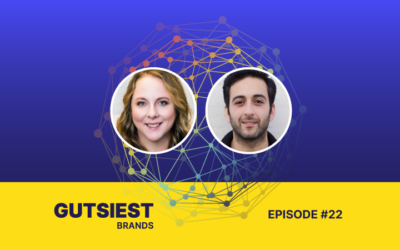What Is Consumer Data Privacy, and Where Is It Headed?
Technology is changing our concept of privacy. A world without music streaming, binge watching shows, or using our smart devices to manage our lives isn’t a world many of us would choose to live in. We have grown accustomed to the ease with which technology enables our lives. Yet, our reliance on and comfort with technology creates a constant erosion of our privacy—and sometimes we’re not even aware of the tradeoffs. Given all of this, the question is, in our modern world, is privacy even possible? And if not, what level of control should we reasonably expect as consumers?
For example, is it reasonable for consumers to receive a free service like Facebook in exchange for sharing their data? Ask most consumers and they will say “it depends.” Are we talking about sharing all my photos? Who gets them? What about my posts? Does someone read them or is it a bot scanning for keywords? What are the keywords used for anyway?
We as consumers are providing billions of data points every second that deliver an endless amount of fuel for businesses. However, as consumers, the bottom line is that we have to actually pay for all of the ‘free services’ we know and love. We aren’t paying for all of these ‘free’ services in the traditional sense of currency, but we are with our data.
There are a lot of people who use this data, but marketers have the opportunities to profit from it—more so than anyone else. They’re the ones willing to pay for it, especially when they’re running tests and control groups to ensure they get the greatest return on investment and ad spend—because leveraging big data for marketing and advertising works. In order to get a consumer to buy a product, the consumer has to first be aware of the product and have a need or desire to buy it—no surprise there. As data has made advertising more sophisticated and effective, the Madison Avenue ‘Mad Men’ have transformed into men and women with more than creative marketing abilities; they also have mathematical and analytical ones.
Thus, data is the currency that makes free or near-free services possible—someone has to foot the bill for our internet service, hardware, and servers. The only reason Skype, Facebook, or any online service is free is due to data. Most consumers understand this conceptually, though not always specifically. Furthermore, consumers may be willing to accept the tradeoff between a value-added service and disclosure of information about them in a classic quid-pro-quo arrangement. However, the challenge is that all this information is buried in a 60-page privacy policy of which most consumers will never read, and if they did, they wouldn’t understand it.
The real call to action here must be on the service provider to allow the consumer to make an informed choice. Moreover, it is reasonable for consumers to expect that in exchange for their free services they are expected to share their information with the service provider. Yet this quid-pro-quo arrangement is much more attractive when consumers have the option or method to control when, what, and how much of that information is shared. However, this is where many marketers and technologists find challenges today.
Certainly, the consumer always has the choice to use or not use a service to express ultimate control over their digital privacy. Yet businesses should hold themselves to a higher standard. Consumers should have a right to know what the agreement is and ideally have the option to control it—the decision should be clear and transparent. For example, before using a free service, you should know that when you agree, that everything you say, do, and post will be stored forever and linked to everything marketers know about you. It should also be clear that this data will be used to market to you in new and creative ways so that you buy more products.
So, where does this leave us? The short answer is the General Data Protection Regulation (GDPR). A regulation used in the European Union (EU) for data protection and privacy for all individuals within the EU, GDPR addresses the export of personal data. It aims to give control over personal data to citizens and residents and simplifies the regulatory environment for international business by unifying the regulation within the EU.
Thankfully, the EU, through the use of GDPR, has been leading the way by saying that consumers should have an inherent right to privacy. This regulation is already being translated into businesses in the US. It will require real consent from consumers and will increase and educate the general public.
But this change will significantly affect how global companies do business locally and in other markets. The bottom line is it will be more complicated for a global company to set up and maintain different levels of privacy standards in different markets around the globe. While some will surely undertake this effort, for many, the path of least resistance will win out. But we should expect many global companies will up their game for US consumers and not just EU consumers. Have you been getting a large number of notifications on updated privacy policies lately? That’s a good sign if you have; it means we’re headed in the right direction—it’s just going to take some time for our laws to catch up with technology. Until then, read those privacy policies as best you can, because after all, it’s your data to begin with.
To check out other articles featured in Forbes by our Chief Product Officer Keith Johnson, read more below.
Want to stay up to date latest GutCheck blog posts?
Follow us on
Check Out Our Most Recent Blog Posts
When Vocation and Avocation Collide
At GutCheck, we have four brand pillars upon which we build our business. One of those is to 'lead...
Reflections on Season 1 of Gutsiest Brands
Understanding people is at the heart of market research. Sure, companies want to know what ideas...
Permission to Evolve with Miguel Garcia Castillo
(highlights from Episode #22 of the Gutsiest Brands podcast) Check out the latest lessons from our...
1-877-990-8111
[email protected]
© 2023 GutCheck is a registered trademark of Brainyak, Inc. All rights reserved.
© 2020 GutCheck is a registered trademark of Brainyak, Inc. All rights reserved.



